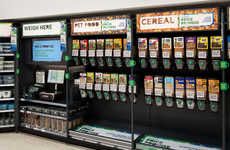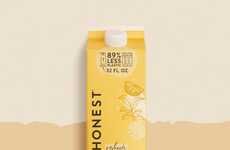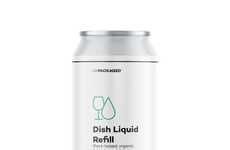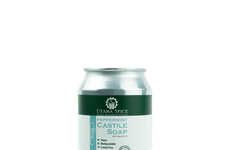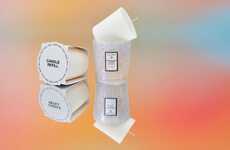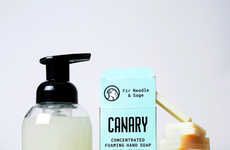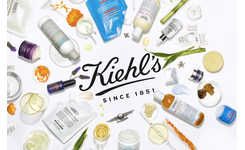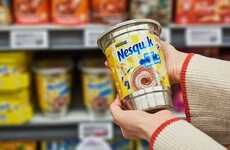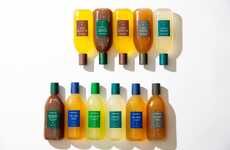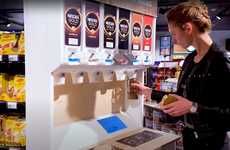



Refill products now make up entire stores to promote sustainable consumption
Trend - Brands are launching retail stores that offer a variety of household and personal care products through bulk dispensers. These stores claim to reduce environmental impact by allowing customers to refill containers and pay by weight, reducing reliance on potentially harmful packaging methods.
Insight - As consumers grow more aware of the environmental consequences of their purchases, they are gravitating towards stores that actively address the impact of consumerism. This trend has led to a rise in "refilleries," which focus on minimizing packaging waste, especially for frequently repurchased personal care products. By catering to the demand for reduced-impact retail stores, businesses can attract environmentally conscious consumers looking to reduce their ecological footprint.
Insight - As consumers grow more aware of the environmental consequences of their purchases, they are gravitating towards stores that actively address the impact of consumerism. This trend has led to a rise in "refilleries," which focus on minimizing packaging waste, especially for frequently repurchased personal care products. By catering to the demand for reduced-impact retail stores, businesses can attract environmentally conscious consumers looking to reduce their ecological footprint.
Workshop Question - What steps can your brand take to minimize waste in product development and marketing?
Trend Themes
1. Zero-waste Shopping - Retail stores offering bulk products for refilling aim to eliminate single-use plastics and significantly reduce overall packaging waste.
2. Sustainable Retail Models - Establishing stores that offer eco-friendly products through refill stations caters to the increasing demand for sustainable consumption among environmentally conscious customers.
3. Consumer Awareness of Environmental Impact - Growing consumer awareness and demand for reduced environmental impact products have led to the proliferation of refilleries that offer sustainable alternatives.
Industry Implications
1. Retail - The retail industry is increasingly adapting to consumer demand for sustainability by incorporating bulk dispensers and refill stations in stores.
2. Consumer Goods - Consumer goods brands are innovating by offering eco-friendly, refillable product options to meet the demands of a more environmentally aware audience.
3. Packaging - The packaging industry is being disrupted by new, sustainable models that focus on reducing or eliminating single-use plastics and waste through refillable solutions.
5 Featured, 22 Examples:
31,759 Total Clicks
Date Range:
Jul 23 — May 24
Trending:
This Year and Warm
Consumer Insight Topics:




